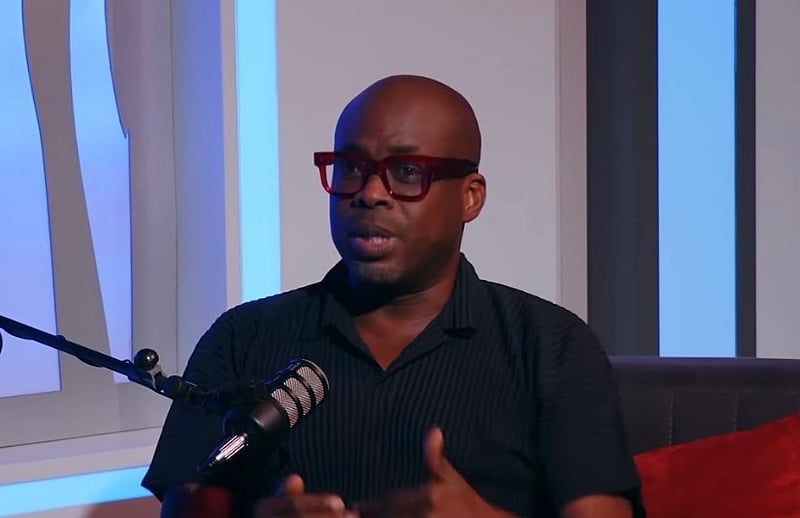Unraveling the GACL Contract Controversy: Adom-Otchere’s Defense and the Looming Exposé
The Ghana Airport Company Limited (GACL) finds itself embroiled in a contentious revenue assurance contract dispute, with former board chairman Paul Adom-Otchere at the center of the storm. The Office of the Special Prosecutor (OSP) has launched an investigation into the contract awarded to Evertex Logistics Limited, summoning Adom-Otchere for questioning as a suspect. Adom-Otchere vehemently denies any wrongdoing, claiming he played no part in the procurement process, a responsibility he asserts lies squarely with management. He maintains that the board merely advised management to explore Evertex’s proposal, with the explicit condition that no payment would be made unless tangible value was demonstrated. He insists that to date, not a single pesewa has been disbursed to Evertex. Adom-Otchere posits that he is being unfairly targeted and that individuals are being coerced into making false statements implicating him in the deal. He questions the investigative methods employed, suggesting that attempts to elicit information about his involvement are leading rather than truth-seeking. Adding another layer of complexity, investigative journalist Manasseh Azure Awuni has hinted at an impending exposé related to the contract, naming Adom-Otchere, GACL Managing Director Yvonne Nana Afriyie Opare, and Public Procurement Authority CEO Frank Mantey as key figures with questions to answer.
Adom-Otchere’s defense hinges on the delineation of responsibilities between the board and management. He asserts that as board chairman, his role was limited to oversight and strategic direction, while procurement matters fell strictly under the purview of management. He portrays the board’s interaction with Evertex’s proposal as purely advisory, emphasizing the stringent “no payment without results” stipulation attached to their recommendation. This depiction seeks to distance him from the actual contract award process, implying that any irregularities or improprieties lie solely with management’s execution. Furthermore, he alleges that the OSP’s investigation is biased, claiming individuals are being pressured to fabricate accusations against him. This assertion casts doubt on the integrity of the investigation itself, potentially undermining its credibility. His surprise at the contract’s execution, only discovered through Manasseh Azure Awuni’s inquiry, further bolsters his claim of non-involvement.
Manasseh Azure Awuni’s impending exposé adds a significant dimension to the unfolding controversy. His reputation for investigative journalism lends weight to his claims, suggesting the existence of substantial evidence warranting public scrutiny. The inclusion of GACL Managing Director Yvonne Nana Afriyie Opare and PPA CEO Frank Mantey broadens the scope of the potential wrongdoing, implicating not just Adom-Otchere but potentially a wider network of individuals involved in the contract’s approval and execution. This raises questions about the transparency and integrity of the procurement process, suggesting potential systemic issues within GACL and the PPA. The anticipation surrounding the exposé creates a climate of uncertainty, potentially foreshadowing further revelations that could implicate key figures in positions of authority.
The GACL contract controversy shines a spotlight on the complexities of public procurement processes and the inherent potential for conflicts of interest and corruption. Adom-Otchere’s defense, centered on the separation of board and management responsibilities, underscores the importance of clear governance structures and accountability mechanisms. His allegations of coerced testimonies raise concerns about the fairness and impartiality of investigations, highlighting the need for robust procedures to protect individuals from false accusations. Manasseh Azure Awuni’s pending exposé adds a critical layer of public scrutiny, potentially uncovering deeper irregularities within the GACL and the PPA. The unfolding events underscore the vital role of investigative journalism in holding public officials accountable and ensuring transparency in government operations.
The timing of Adom-Otchere’s resignation as board chairman in January 2025, occurring after the period under investigation, raises questions about the motivations behind his departure. While he attributes it to personal reasons, the proximity to the OSP investigation inevitably invites speculation about a potential connection. Did he resign preemptively in anticipation of the unfolding scandal? This unanswered question adds another layer of intrigue to the ongoing saga, prompting further examination of the circumstances surrounding his departure. Furthermore, the fact that Adom-Otchere was only made aware of the contract signing through Manasseh Azure Awuni’s inquiry suggests a breakdown in communication and oversight within GACL. This raises questions about the effectiveness of internal controls and reporting mechanisms, highlighting potential vulnerabilities that could facilitate irregularities in procurement processes.
The GACL revenue assurance contract controversy serves as a cautionary tale about the importance of transparency and accountability in public procurement. The allegations against Adom-Otchere, his defense, and the looming exposé underscore the need for robust systems to prevent corruption and ensure that public funds are utilized responsibly. Whether Adom-Otchere’s claims of innocence hold up under scrutiny remains to be seen. Manasseh Azure Awuni’s exposé promises to shed further light on the matter, potentially revealing the full extent of the alleged wrongdoing and implicating other key players. The ongoing investigation by the OSP will be crucial in determining the truth and holding those responsible accountable. The outcome of this case will undoubtedly have significant implications for the future of public procurement practices in Ghana and the fight against corruption.
The controversy also highlights the crucial role of investigative journalism in exposing potential corruption and holding powerful individuals accountable. Manasseh Azure Awuni’s impending exposé serves as a stark reminder of the power of the press to uncover misconduct and bring it to public attention. The public’s right to know and the importance of transparency demand that such investigations be conducted thoroughly and without fear or favor. The outcome of this case will serve as a testament to the strength of Ghana’s institutions and their ability to address corruption at the highest levels. It will also be a crucial test of the country’s commitment to promoting good governance and ensuring that public resources are used for the benefit of all citizens.


